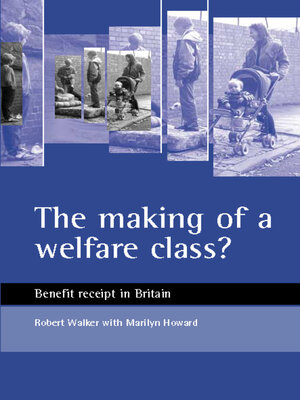
Sign up to save your library
With an OverDrive account, you can save your favorite libraries for at-a-glance information about availability. Find out more about OverDrive accounts.
Find this title in Libby, the library reading app by OverDrive.



Search for a digital library with this title
Title found at these libraries:
| Library Name | Distance |
|---|---|
| Loading... |
Over the last three decades Britain has witnessed an unprecedented rise in the number of people receiving welfare benefits that has provoked fears of a growing underclass and mass welfare dependency.
The making of a welfare class? provides the first comprehensive analysis of the reasons for this growth and subjects notions of welfare dependency and the underclass to empirical test. It focuses on four principal groups of benefit recipients - children and families, retirement pensioners, disabled people, and unemployed people - and, using important new evidence, explores the relative importance of economic, demographic, institutional and normative factors in the pattern of growth.
The book addresses a phenomenon - growth in benefit recipiency - which is common to all advanced industrial countries and nowhere well understood. As a central focus of government policy and a key development in modern society, the issues explored in the book will therefore be of interest to academics and policy commentators alike.
Written in an accessible style and assuming no prior knowledge, with succinct chapters, elegant summaries and extensive use of graphics, complex arguments appear simple. A comprehensive glossary of technical terms is included. As a result, The making of a welfare class? is compulsory reading for undergraduates and postgraduate students of sociology, social policy and economics and anyone else interested in the development of modern British society and welfare policy.







